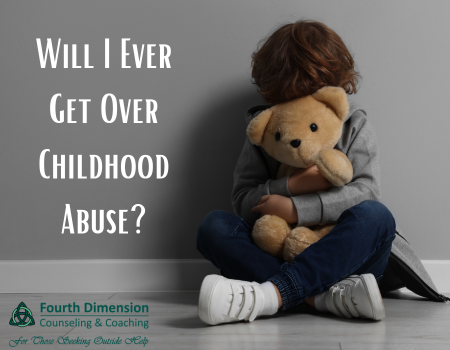Surviving childhood abuse is one of the most challenging experiences a person can face, and its effects can linger into adulthood, impacting mental health, relationships, and self-esteem. Many survivors wonder if they will ever truly “get over” their past, or if the effects of childhood abuse will follow them for life. While healing from such experiences is a complex journey, it is indeed possible to find peace and build a fulfilling life.
 Understanding the Long-Term Impact of Childhood Abuse
Understanding the Long-Term Impact of Childhood Abuse
Childhood abuse can affect survivors in profound and lasting ways, influencing how they view themselves and interact with the world. Common effects include feelings of shame, anxiety, depression, trust issues, and even physical health challenges. Survivors may have difficulty setting boundaries, forming healthy relationships, or feeling safe, which can lead to a cycle of negative emotions and self-doubt. Recognizing these patterns is the first step in the healing process, as it helps to identify areas where support may be needed.
Can You Ever Fully “Get Over” Childhood Abuse?
Many therapists and survivors agree that “getting over” childhood abuse doesn’t mean forgetting what happened or pretending it didn’t affect you. Rather, it means reaching a place where the past no longer controls your present, and you feel empowered to lead a life that reflects your true self, separate from past pain. The process of healing is often about finding ways to cope with the effects of abuse, understanding and processing emotions, and learning to manage triggers. While complete detachment from painful memories might not be realistic, they can fade in intensity, allowing you to live more freely.
The Healing Journey: Tools and Therapies for Recovery
There are various tools and therapeutic approaches that can be extremely beneficial in helping survivors of childhood abuse move forward:
- Therapy: Working with a therapist who specializes in trauma can help you process your experiences in a safe, supportive environment. Therapies such as Cognitive Behavioral Therapy (CBT), Eye Movement Desensitization and Reprocessing (EMDR), and trauma-focused therapies are commonly recommended for childhood abuse survivors.
- Self-Compassion: Learning to treat yourself with kindness and understanding is crucial. Self-compassion exercises can help break cycles of shame and self-blame that are common among survivors.
- Mindfulness and Grounding Techniques: Mindfulness practices, meditation, and grounding techniques can help you stay connected to the present and manage emotional triggers that might pull you back into painful memories.
- Building a Support Network: Connecting with others who understand your experience can be incredibly validating. Support groups, whether in-person or online, support groups provide a safe space for sharing experiences, unlearning and learning new things, and receiving encouragement.
Embracing Patience and Self-Acceptance
Healing from childhood abuse takes time, and each survivor’s journey is unique. There may be setbacks and periods of intense emotion, but that doesn’t mean progress isn’t happening. By honoring your feelings, acknowledging your resilience, and being patient with the process, you can gradually build a healthier, happier life.
Fourth Dimension Counseling and Coaching offers compassionate support to help individuals heal from childhood abuse, along with a range of other counseling and coaching services to support personal growth and well-being.
